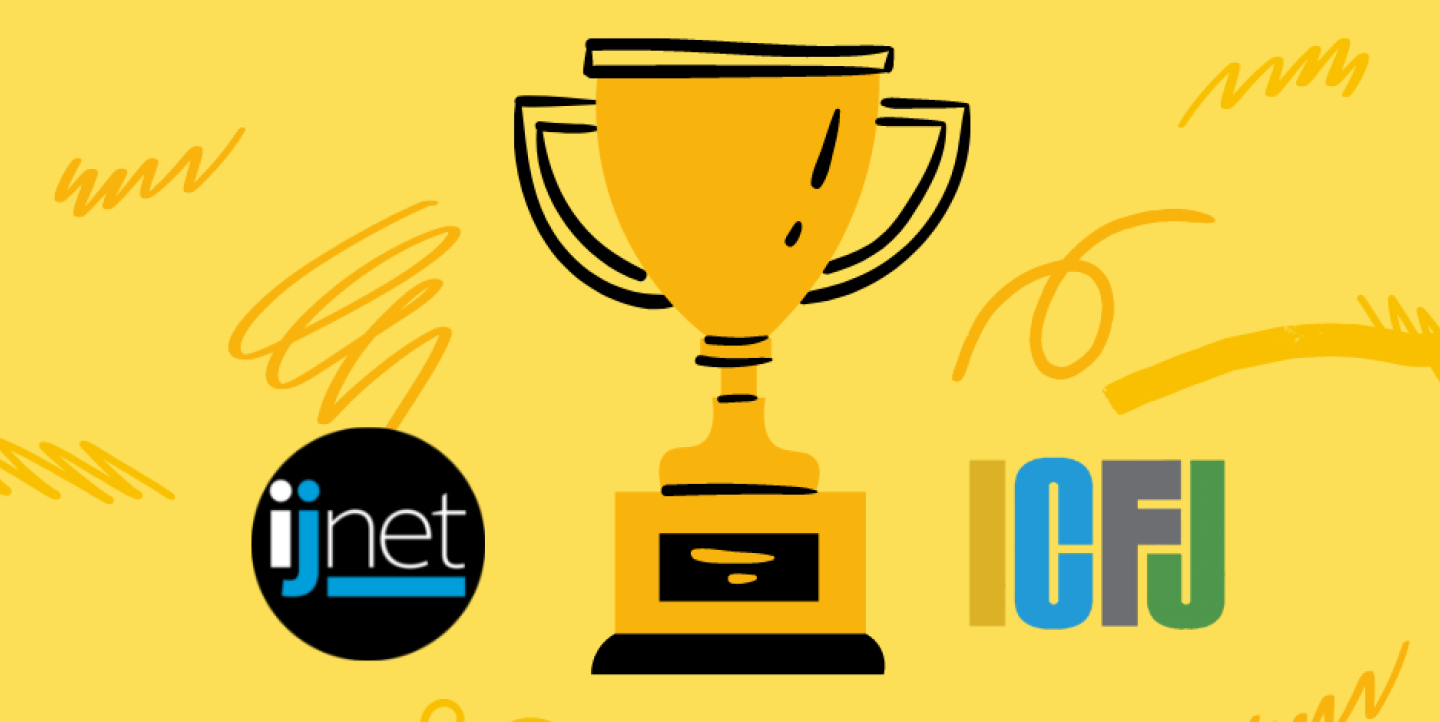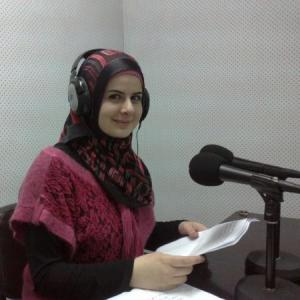As countries across the Middle East and North Africa navigate economic crises, political instability, and the consequences of climate change, media outlets tasked with reporting on these issues, among others, struggle to stay afloat.
Against this backdrop, the IJNet Arabic Mentoring Center for Media Startups in the MENA region seeks to provide a helping hand. The 10-month program pairs accomplished mentors in the region with media entrepreneurs to provide guidance and support as they develop their respective projects. In December, the mentees took part in a virtual two-day bootcamp alongside the 14th annual Arab Reporters for Investigative Journalism (ARIJ) Forum.
"I enjoy working with media organizations from around the MENA region very much,” said mentor Ramsey Tesdell, founder of the independent Jordan-based news outlet, 7iber, and executive director of the podcasting platform, Sowt. “While the struggle is real and difficulties are numerous, the hope and optimism from different parts of the region fill me with a hope that change is coming and the future will be better than our past. Media development and innovation is an important part of our societies, and also a great way to entertain us.”
Journalists in the Arab region today must keep up with innovative methods and formats to carry out their reporting, contend with mis- and disinformation, and understand what new tools and software are available to enhance their content production, among other challenges, explained Ahmed Esmat, the executive director of the Egypt-based Alexandria Media Forum, who joined Tesdell this year as a program mentor.
“The Mentoring Center fills many gaps for journalists in the region, particularly those relating to professional work that aims to promote entrepreneurship, innovation, and diverse content,” he said.
This year, the Mentoring Center awarded seed funding to all eight participants to further cultivate their media initiatives. Here’s a look at the mentees and how they have developed their respective projects:
Shehata Sayed
Egypt
Investigative reporter Shehata Sayed runs a media platform called Open Source Handbook, an open source guide for Arab journalists.
Today, Sayed is working with the Iraqi Network for Community Media and Checker News in Iraq, as well as the Yemeni Network for Community Media and the Humanitarian Journalism Foundation in Yemen. He has also partnered with the Google News Initiative to offer a series of workshops on data journalism and visualization, storytelling through maps, and more.
“I was able to identify target audiences, develop a sustainability plan, analyze media competitors, form new partnerships, and improve marketing plans,” Sayed said of his involvement in the Mentoring Center.
Fadi Husny
Palestine
Palestinian journalist Fadi Husny developed his independent storytelling platform, Last Story, during this year’s program.
“My digital media initiative witnessed a complete transformation in terms of idea development and rebuilding based on the models, plans and training that I received from the Mentoring Center, until I managed to receive funding for the project,” he said, noting that he was able to acquire funding from the European Endowment for Democracy.
“Last Story gained the attention of independent journalists, and created a space to help marginalized groups in society promote social justice.”
Hanane Batache
Algeria
Hanane Batache manages the platform Aqwas from the city of Adrar in central Algeria. Aqwas is a local news outlet that also provides training for journalism students in the country.
“My digital media initiative has changed a lot after my participation, especially in terms of setting the ideas and creating the content. [This] helped me think about the team, and how I can receive funding for my initiative which was in a bad financial phase before participating in this program.”
Najoua Hammami
Tunisia
Investigative journalist and university professor Najoua Hammami is the programming director of Essaida, a radio station dedicated to raising awareness about human rights. “I was able to introduce the radio station in Tunisia and the Arab world,” Hammami said of her participation in the Mentoring Center.
According to Hammami, Essaida now broadcasts on FM, in addition to streaming online. Her outlet has also made inroads in local communities, and humanized pressing issues.
“We made a positive impact in the [most populated] neighborhoods, and became a link between them and officials in Tunisia. We were able to change the prevailing notion that [these neighborhoods are] full of crime and drugs, and we drew attention to the human side,” she explained. “The radio became known, which pushed the funders to know more about our work and support us, whether through training courses, funding, or purchasing equipment.”
Youssef Askour
Morocco
Moroccan journalist Youssef Askour is the founder of Maghreb Al Thaqafa, a media platform that produces written, audio and video reporting on cultural affairs, primarily targeting younger audiences.
“I am now able to identify goals, and the program allowed me to participate in local and international events,” he said, adding that he has also received support from the French media development agency, CFI.
Dares Badani
Yemen
Dares Badani is the head of the Media Center for Persons with Disabilities, which produces reporting and success stories using sign language and braille to reach audiences with visual and hearing difficulties. During the Mentoring Center, Badani developed a business plan and marketing strategy, among other steps to grow his outlet.
The impact generated by the Media Center’s reporting over the past year, however, has been most noteworthy for Badani. "We have produced a radio series called "Badi and Amal," consisting of 30 episodes that were broadcast on 13 local radio stations, in Sana'a, Hadhramaut, Aden, Al Hudaydah, Marib, Shabwa, Mahra, Ibb governorate and Taiz,” he said. “It was the first series specialized in highlighting the issues and rights of people with disabilities in Yemen in a simple way that reaches all of society.”
He added that the series has helped raise awareness of violence against women and girls with disabilities, issues of access for people with disabilities, and more.
Mohammed Ghazale
Lebanon
Mohammed Ghazale runs a website called ZNN in Lebanon. During the Mentoring Center, Ghazale was able to improve the organization of his staff, better defining team roles. He also focused on developing membership strategies.
“Our work witnessed remarkable improvement, especially in terms of finding new development opportunities, as well as everything in relation to planning, evaluation and goal setting,” he said. Ghazale also launched an academy for training journalists this past year.
Huda Harbi
Yemen
Together with a group of women journalists in Yemen in 2019, Huda Harbi launched Neswan Voice, which aims to amplify the voices of women in Yemen.
During the program, Harbi developed a three-month work plan, through which she identified priority topics to cover, as well as budget costs to sustain her initiative. Harbi also formed a partnership with Internews, she noted.


